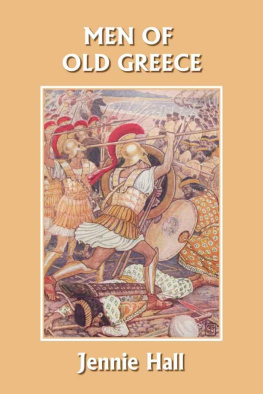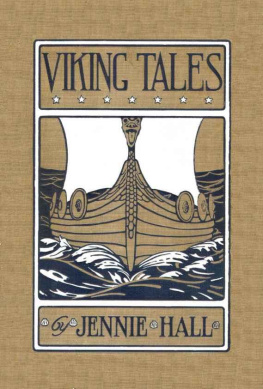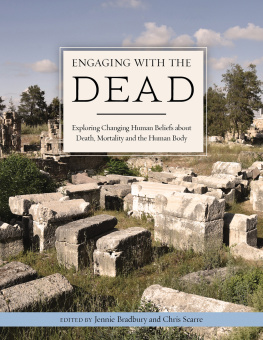Jennie Hall - Men of Old Greece
Here you can read online Jennie Hall - Men of Old Greece full text of the book (entire story) in english for free. Download pdf and epub, get meaning, cover and reviews about this ebook. year: 2008, publisher: Yesterdays Classics, genre: History. Description of the work, (preface) as well as reviews are available. Best literature library LitArk.com created for fans of good reading and offers a wide selection of genres:
Romance novel
Science fiction
Adventure
Detective
Science
History
Home and family
Prose
Art
Politics
Computer
Non-fiction
Religion
Business
Children
Humor
Choose a favorite category and find really read worthwhile books. Enjoy immersion in the world of imagination, feel the emotions of the characters or learn something new for yourself, make an fascinating discovery.
- Book:Men of Old Greece
- Author:
- Publisher:Yesterdays Classics
- Genre:
- Year:2008
- Rating:3 / 5
- Favourites:Add to favourites
- Your mark:
- 60
- 1
- 2
- 3
- 4
- 5
Men of Old Greece: summary, description and annotation
We offer to read an annotation, description, summary or preface (depends on what the author of the book "Men of Old Greece" wrote himself). If you haven't found the necessary information about the book — write in the comments, we will try to find it.
Men of Old Greece — read online for free the complete book (whole text) full work
Below is the text of the book, divided by pages. System saving the place of the last page read, allows you to conveniently read the book "Men of Old Greece" online for free, without having to search again every time where you left off. Put a bookmark, and you can go to the page where you finished reading at any time.
Font size:
Interval:
Bookmark:
All rights reserved. No part of this book may be reproduced or retransmitted in any form or by any means without the written permission of the publisher.
This edition, first published in 2010 by Yesterday's Classics, an imprint of Yesterday's Classics, LLC, is an unabridged republication of the work originally published by Little, Brown, and Company in 1905. This title is available in a print edition (ISBN 978-1-59915-270-7).
Yesterday's Classics republishes classic books for children from the golden age of children's literature, the era from 1880 to 1920. Many of our titles are offered in high-quality paperback editions, with text cast in modern easy-to-read type for today's readers. The illustrations from the original volumes are included except in those few cases where the quality of the original images is too low to make their reproduction feasible. Unless specified otherwise, color illustrations in the original volumes are rendered in black and white in our print editions.
That old Greece was a lovely land. Everywhere lines of peaked mountains looked at each other across pretty little valleys. Through the valleys sparkled small rivers. Beside the rivers stretched green olive groves, golden wheat fields, and garden-spots. Here and there, among the fields, shone white cities, with high walls and twisting streets. From the mountain-foot down to the flat valley lay hills, great and small. Their sides were streaked with vineyards and dotted with whitewashed cabins. On the mountain-side strayed sheep, watched by their shepherd, who was piping to himself in a cool cave. Every mountain-top looked off to the purple sea near at hand. This sea was dotted with ships and with rocky islands.
Up and down these islands and valleys and hillsides walked the beautiful Greeks. What made them beautiful? Their smooth skin, well rubbed with olive oil; their muscles, trained in the gymnasium; their shining eyes, happy with looking upon sea and mountain and statue and temple; and their clothes helped, too, for these were of bright colors and hung in gently moving folds. The busy vine-grower among his grapes, the shepherd walking the rough mountain, the sailor on his ship, the carpenter in his shop, wore short chitons, that left arms and legs bare and free. In the cool evening they clasped short capes about their shoulders. In the hot sun they tied broad hats on their heads. For a walk on a stony road they tied open sandals under their feet. The idle gentlemen of the cities threw about themselves himations,great shawls, of thin wool or linen, that fell in soft folds from neck to feet. The women wore long, loose robes of the same sort.
Above this lovely land, and caring for it, were the gods. They lived in Olympus, a shining city among the stars. A golden wall, with clanging gates, went around it. Inside were sloping green meadows, sprinkled with wonderful flowers. Sitting among the flowers and grass were houses of gold and silver, the homes of the gods. On a little hilltop was a golden throne. Here sat Zeus, the king of the gods, the lord of the world. By his side sat Here, his queen. Around him stood the company of the gods, looking down upon the world.
There was Apollo, the beautiful, who by day drove the chariot of the sun across the sky. At night he sat here in Olympus, at the feast of the gods. He played on his lyre and sang such songs as common men have never heard. And there was Athene, in her armor of bronze. She took care of all the battles of the world, and she taught women to weave and men to work with tools. And there was Poseidon, who sometimes lived in a cave at the bottom of the sea. He made storms on the sea, and he calmed them. There was Hermes, who sent gentle winds to carry ships to the right port, and who flew through the air with the messages of Zeus. There was the boy-god, Dionysus, who sent dew and warmth to ripen the grapes of all the world. And there was Artemis, who drove the silver chariot of the moon and sometimes hunted the deer in the wildwood. There was the blacksmith god, Hephaestus. He could make statues of gold, that moved and walked about. There was Ares, the fierce god of war. And there was Demeter, who ripened the grain all over the world.
All these gods were like men and women, but taller, more beautiful and more wonderful. They could never die. Their eyes looked to the farthest edges of the world. No man could hide from them. They walked through the sky as quickly as thought. In the wink of an eye they could change from a god to a ragged shepherd lad or an eagle. Life was very gay and easy for them. And yet they had work to do. If Apollo had idled away a month in Olympus, the trees and plants and men down in the world would have died in the darkness. If Here had forgotten to visit the earth, no little babies would have come to happy mothers and fathers. If Dionysus had neglected his work, the grapevines and the pomegranate trees and the melon-vines all over the world would have died, and men would have been hungry for fruit, and thirsty for wine. If Poseidon had been angry and left the sea to storm, thousands of ships would have been wrecked, and sailors drowned. So the gods were a company of busy people, flitting about from city to city, from field to field, from sea to sea, and back to Olympus, to rest and feast and play. But they took care that men should not see them on those visits.
Now the Greeks down in the world loved these gods for their kindness. They wished to thank them. They wished to make them gifts. But they could not think how to do it; for they never saw the gods during their visits to the earth. Neither did they know what to send.
"The gods do not eat common food," they said, "but the sweet odors of the world are pleasant to them. Would they not like a taste of this meat and these fruits that they have given us? How shall we send them so far?"
Then they saw the smoke rising above the fire, above the house-top, above the trees, up into the sky.
"That is the way," they said.
So they built fires on little piles of sod. They soaked the sod with sweet-smelling wine. They put meat and fruits into the fires. The smoke caught the odors of wine, of crisping meat, and of toasting fruits, and whirled them up through the sky to Olympus. There the gods breathed the perfume and smiled down upon the blazing altars and the lifted hands.
Sometimes people built marble houses, or temples, around these altars. Here the gods might come to rest from their work in the world. Here people might come to bring gifts to the gods.
In such a land, among such people, under the eyes of these gods, lived the men of this book.
I T was in one of the soldiers' huts at Sparta. Fifteen men, young and old, sat at mess. The heavy table before them had no cloth and few dishes. The seats were backless benches. The ceiling and walls of the hut were of rough, round logs. The floor was of dirt. Against one of the walls leaned long spears. The men were clothed in coarse gray chitons. There was no shine of gold or flash of color to make the place beautiful. But there were some things there more beautiful than gold or gay cloaks,the men's broad shoulders, the working muscles of their brown arms, their high-lifted heads and tumbled hair.

Font size:
Interval:
Bookmark:
Similar books «Men of Old Greece»
Look at similar books to Men of Old Greece. We have selected literature similar in name and meaning in the hope of providing readers with more options to find new, interesting, not yet read works.
Discussion, reviews of the book Men of Old Greece and just readers' own opinions. Leave your comments, write what you think about the work, its meaning or the main characters. Specify what exactly you liked and what you didn't like, and why you think so.













